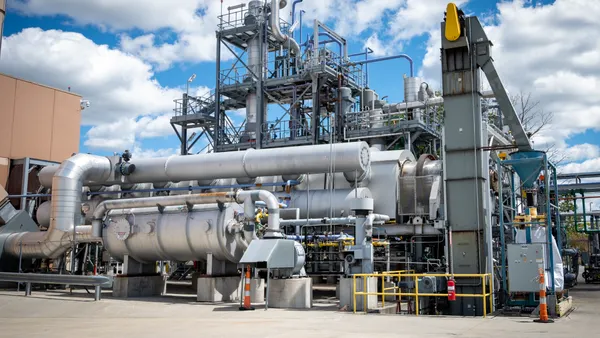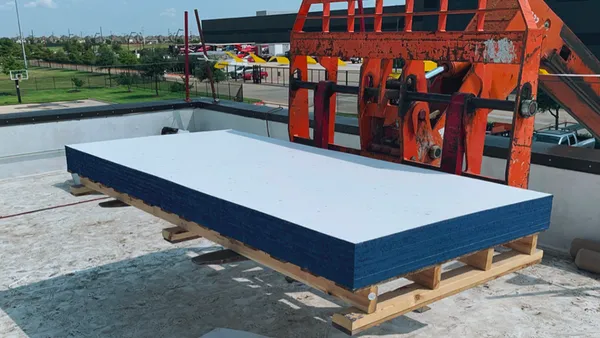Dive Brief:
- New York City residents are now encouraged to recycle aluminum coffee capsules and other small pieces of aluminum thanks to a partnership between the city's Department of Sanitation (DSNY), Sims Municipal Recycling and Nespresso. Previously, the lightweight items included alongside plastics, glass and other metals in curbside bins were not sortable for value.
- Nespresso contributed $1.2 million, which covered the majority of the cost for Sims to add a new nonferrous metal processing line. This includes numerous components, such as conveyors and an SSI shredder, Sims General Manager Tom Outerbridge told Waste Dive.
- Although these metals do not make up a significant portion of the stream by weight, they are commonly received and difficult to market. "The investment was really important for Sims to maximize the capture of that aluminum. From Sanitation's perspective, this is a positive thing," Bridget Anderson, DSNY's deputy commissioner of recycling and sustainability, told Waste Dive.
Dive Insight:
Unlike some recyclers that have cut glass from curbside programs, Sims operates its own glass beneficiation plant because the company's local operations process more than 11,000 tons of material per month. The trouble with glass is it carries a lot of other small, light items with it.
The MRF glass Sims processes is typically screened to a two- to three-inch fraction, meaning bottle caps, corks and balls of aluminum foil can sometimes get mixed in. Ferrous and nonferrous metals previously were extracted by Sims using magnets and eddy currents, but small, light items such as Nespresso's coffee capsules were difficult to capture and process into a valuable commodity.
"By weight, a capsule is about 90% coffee and 10% aluminum. That's not an aluminum product our customers would want," Outerbridge said. "I give Nespresso a lot of credit ... They came forth with a pretty big financial contribution to make [recycling] work for their material."
Since installing the new nonferrous line, Sims is able to separate the materials into a quality that can be sold to manufacturers to create new products.
While the Nespresso pods can be tossed into curbside recycling bins because they are completely aluminum, similar items can be troublesome if the base and lid are made from different materials.
DSNY doesn't have plans to launch a new educational campaign, or significantly alter its existing messaging, because aluminum was already accepted in curbside bins. Anderson said the agency might eventually specify some of the new lightweight items are now acceptable.
Looking ahead, this partnership has the potential to influence how other difficult-to-recycle items are treated. Outerbridge said Sims frequently talks with organizations and manufacturers to find additional recycling solutions. For example, the company is actively trying to find solutions for plastic film.
"We do work with quite a few companies — both on the manufacturing side and downstream side of the business — to try to develop better markets for the materials that we don't have good homes for and increase the recyclablilty of the materials we do get," he said.
DSNY also said it encourages partnerships that create innovation within New York's recycling program.
"This is one of those examples where the private sector is saying they want to help make sure there's infrastructure available to recycle the products that we are putting into consumers' hands," Anderson said. "We're supportive of that. If there are other private sector companies who want to partner with Sims, that is definitely something that Sanitation would support."










